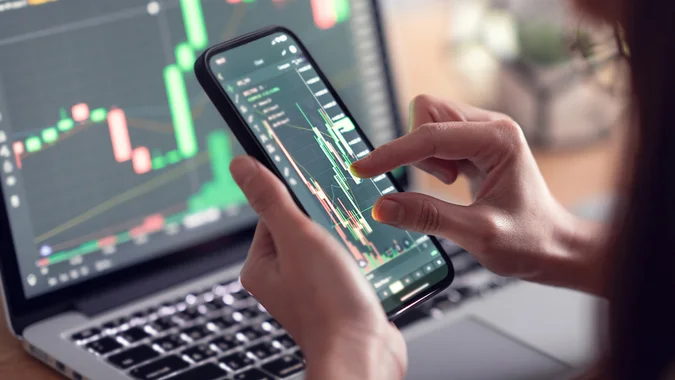Open Trading Account & Avail Tips to help you minimise trading losses

Trading in the stock market can be a pathway to earn profits, yet it does not come without challenges and open trading can be easy but choosing the right one can be difficult. The uncertainties of the market, the quick and complex decisions to be made, and the risk of losses can be tricky for any trader, seasoned or novice.
Understanding the Risk-Reward Ratio While Open Trading Account
The Risk-Reward Ratio is a key component in any trading strategy. Simply put, it is the potential profit you can make from a trade compared to the potential loss.
Applying the Risk-Reward Ratio After Open Trading Account:
- After you open trading account, it is critical to understand the Risk-Reward Ratio and how it impacts your trading decisions.
- Careful consideration of the Risk-Reward Ratio can prevent impulsive decisions and lead to more measured and profitable trades.
Take the case of Ankit, an active trader. He opts for trades with a Risk-Reward Ratio of 1:3. So, even if he loses on some trades, the profits from successful ones, where he gains 3 times the amount risked, help offset those losses and potentially provide a net profit.
Importance of Market Research and Analysis
Trading without adequate market research and analysis is akin to sailing in unchartered waters. Fundamental and technical analyses are the compass and map in this context.
Fundamental Analysis:
- Fundamental analysis involves assessing the health of a company before buying its shares. It includes evaluating financial statements, market position, competitors, and sectors.
- Understanding the basics of fundamental analysis can be crucial when you plan to make some quick profits while trading.
Technical Analysis:
- On the other hand, technical analysis involves studying market trends, patterns and volume using various charts and statistical measures. It helps time the entry and exit points for trades.
- Once you’ve open a trading account, using technical analysis can help identify profitable trading opportunities.
Market Research Tools:
- Many online platforms provide tools and resources for market analysis. Opting for SEBI-regulated platforms is considered safer.
- Regularly using these resources can give traders an edge in the market.
The Role of Emotion in Trading
Trading can often stir strong emotions, which, if unchecked, can lead to rash decisions. Learning to control your emotions can significantly impact your trading strategy and help minimise losses.
Impact of Emotional Trading:
- Emotional decisions can lead to overtrading, ignoring stop loss levels, or holding on to losing trades in the hope of a turnaround. All of these behaviours can negatively affect your invested funds.
- Emotions like fear and greed often prompt traders to deviate from their planned strategies, leading to potential losses.
Strategies for Emotional Discipline:
- Keeping a trading journal to document your trades, thoughts, and emotions can help identify any emotional patterns that affect your trading decisions.
- Practising patience and discipline, and sticking to your predetermined trading plan, can help combat emotional trading.
The Importance of a Trading Account with a Proper Plan:
- A trading account plan outlines your financial goals, risk tolerance, and specific criteria for entering and exiting trades.
- It serves as a roadmap for your trading activities and helps keep emotions in check.
The Value of Continuing Education
In the fast-paced trading world, staying updated with market trends and improving your trading skills through continuous learning is essential to protect yourself from losses.
The Need for Continuous Learning:
- Market trends, new trading tools, regulation changes, or economic events can significantly impact your trades.
- Continuing education helps traders adapt their strategies to these changes and optimise their trading performance.
Staying Updated with Market Trends:
- Following financial news, attending webinars, or participating in online trading forums can keep you abreast of market trends.
- Awareness of these trends can enable you to make informed trading decisions, reducing potential losses.
Improving Trading Skills:
- From understanding new technical analysis indicators to learning about new asset classes, improving your trading skills can help maximise profits and minimise losses.
- Numerous online courses, books, and seminars are available to help enhance your trading skills.
Wrapping Up
Minimising trading losses is about implementing strategic decisions, having emotional control, and continuously learning.
Controlling emotions and staying educated about market trends is vital in protecting your trading account from significant losses. It’s important to remember that these strategies work best when applied consistently, ensuring a balanced approach to the ever-changing market scenarios.
Read more blogs on our website.



